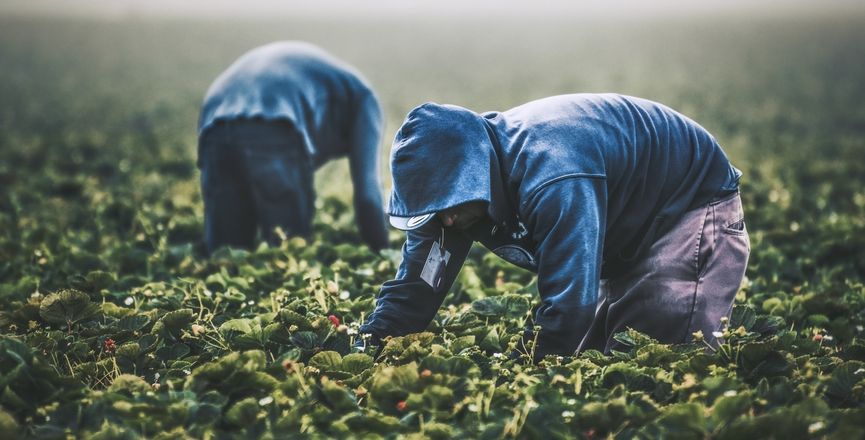This week the British Columbia government announced the end of its COVID-19 quarantine program for temporary agricultural foreign workers in tandem with the federal government’s decision to further ease travel restrictions.
The end of the program comes while advocates for migrant workers remain concerned about the ongoing health risks workers face and the lack of support available as another COVID wave looms.
B.C.’s quarantine program was launched in April 2020 to provide funding for hotel accommodation, food, health screening and other services while temporary agricultural workers quarantined for 14 days upon arrival in Canada, as required by federal regulations.
Since March 16, the provision of quarantine accommodation, food and support for partially vaccinated or unvaccinated workers has been the responsibility of employers. Many migrant workers hail from countries with lower vaccination rates than Canada.
Early in the pandemic, B.C.’s program was praised as a “model” for how to treat migrant workers during COVID. Other provinces left workers to quarantine at their place of employment, often in cramped living quarters.
The province’s news release announcing the end of the program stated, “more than 15,000 workers went through the program, with 233 workers diagnosed with COVID-19 while in quarantine.” The statement claimed the program had fulfilled its purpose, and kept “workers and communities safe and healthy.”
However, Byron Cruz, a member of Sanctuary Health, a grassroots organization that advocates for migrant worker health services, told The Maple he is concerned about how an expected new COVID wave will impact workers hired in a program notorious for poor housing, minimal pay and highly precarious conditions.
Cruz explained that his organization was happy to see the province step in with the program following a March 2020 outbreak on an Okanagan farm. Migrant workers typically live in crowded accommodations, putting them at high risk of transmission, Cruz noted.
But the quarantine program had serious inadequacies. “The workers had a terrible experience with the food that was provided at the hotel,” said Cruz. “Many workers got sick; many workers lost weight.”
Complaints to the Ministry of Agriculture, which was responsible for the program, led to no improvement, he added. Another problem was poor communication from public health authorities.
Since August last year, fully vaccinated migrant workers have been exempt from federal quarantine requirements, meaning only a small number of workers have had to quarantine in hotels over the past few months.
Cruz noted that the decision to scrap the provincial quarantine program follows the federal government’s relaxed travel restrictions. The ending of the program, he said, “makes sense because other travellers are not getting as many requirements as well.”
However, he noted, workers have told him they are concerned about the arrival of the more transmissible BA.2 sub-variant while their crowded housing and precarious work conditions have not improved.
“In probably just a few weeks from now we will see again an increase of the new variant of COVID into the farm,” said Cruz. “It is unfortunate that the provincial government has not consulted with the migrant workers organizations about a plan B.”
“The workers are still vulnerable,” he added, stating that migrant workers have been directly impacted by three crises in the past year: The pandemic, a record-breaking heatwave and catastrophic floods. The government has no emergency plans in place to support workers during future crises, said Cruz.
Recorded COVID-19 cases in B.C. have remained steady in the current reporting period, for a seven-day average of 229 cases as of March 30, according to data from the province’s pandemic dashboard.
However, an independent expert modelling group warned earlier this month that the province could see another wave by the end of April, putting high-risk groups like those aged over 70 and immunocompromised people in danger.
In Ontario, wastewater signals compiled by the province’s Scientific Advisory Table indicate that cases are on the rise, with upticks also seen in Saskatchewan and Alberta. Experts have warned Canada is likely heading toward a spring wave driven by the new sub-variant.
A scathing report from the federal attorney general in December found at least three migrant farm workers have died from COVID in Canada since the pandemic began.
Dr. Mei-ling Wiedmeyer, a primary care physician for migrant families based in Vancouver, told The Maple her research found that individuals with temporary immigrant status who qualified for provincial health services have received fewer COVID tests but recorded a higher proportion of positive results than the general population during the pandemic.
Migrants in that category, many of whom are agricultural workers, also had significantly fewer primary care visits for COVID, Wiedmeyer explained. That trend suggests some temporary migrant workers are not getting the health services they need.
“There are a number of circumstances surrounding their context – where they live, their employment conditions – that probably mediate their access to health care, over and above just having insurance,” she said.
The relaxation of public health protections and support programs as a new variant spreads, Wiedmeyer explained, could put migrant workers at risk of catching COVID through community transmission.
“That's kind of what we saw happen the first time around, before they had the quarantine program,” she said. “People would come and it wasn't necessarily the travel that was the big issue, but that they would then go directly to their farm, and then they would acquire COVID in the community.”
However, said Wiedmeyer, workers were often afraid to report symptoms as doing so could mean being forced to isolate at their place of work with sometimes limited access to food. On the farms, she explained, the workers had no direct connection to health care outside of what their employers controlled.
“That was really concerning for us, as healthcare providers, because if all of your ability to get health care has to go through your employer, then you don't have very much autonomy or control over your own health,” said Wiedmeyer.
B.C.’s quarantine program was helpful, she explained, because it granted workers a relatively independent space in which they could connect with health services.
“People who had chronic conditions that might predispose them to having a more significant COVID infection could be alerted to healthcare providers in their surrounding regions … before they went to the farm,” said Wiedmeyer.
With the cancellation of the program, concerns remain about what healthcare access will look like for workers who fall sick in an environment heavily controlled by their employer, she noted.
Cruz agreed that workers are reluctant to report COVID symptoms on the farms. “They're afraid of retaliation from the employer,” he said, adding that workers are not making use of the five days of paid sick leave recently legislated by the B.C. government.
“The workers should be able to use their rights and the only way to use their rights is to have access to full permanent resident status,” said Cruz. “Access to permanent residence should not be a path; it should be a right for everyone who comes to work in the farms and other jobs.”
Last April, the federal government introduced a program promising a pathway to permanent residency for 90,000 “essential” workers. However, the majority of those spaces were reserved for university graduates and health care workers, leaving only 30,000 spaces for other “selected essential occupations.”
“It's terrible,” said Cruz. “It was full of barriers.” The program, he explained, required that applicants had advanced English language skills, a qualification few workers have in an employment program for which no formal schooling is needed.
“I don't know anyone yet who has been successful with the permanent residency application,” said Cruz.
Alex Cosh is the managing editor of The Maple.
Edited by John Young.







